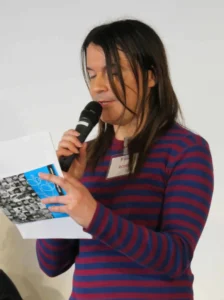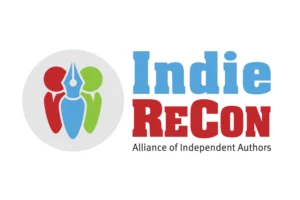To kick off this week on the blog with an impassioned call to arms from Rohan Quine on why he thinks we need to protect less commercial forms of writing from being banished from our culture by market forces.
This is an exciting era, with new digital possibilities opening up every month, it seems. And that’s fabulous. It sometimes feels as if we’re hardly in control of those developments – and that in itself is fun, and it’s probably good for us too. But we can still influence a few things, to some extent, sometimes. Which means it’s incumbent on us to try to do so, if we can discern a way of steering those things for the better – such as making sure this brave new publishing arena is fully on view and celebrated in all its variety. So here’s a question, just to throw into the mix.
The Age of the Algorithm
One characteristic of this era is that secret and mysterious non-human algorithms increasingly act as virtuous spirals of market power, perhaps more than ever before. But let’s stand back from those less-human processes and consider an equally important, wider question. That question is: how can we ensure the longer-term good health (financial and cultural) of a sector of human endeavour whose richness and interest depend on the flourishing of a diversity of fiction categories, and not just the handful of categories that happen to sell at the highest volume? Solving this would benefit many electrifying writers whose voices would otherwise go unheard; but more importantly, it would also benefit readers and the wider culture.
 Other Sources of Oxygen Required
Other Sources of Oxygen Required
It goes without saying that all fiction categories are created equal in themselves, with equal value and loveliness. But in both independent and traditional publishing these days, titles in literary and cross-genre categories are under more pressure than ever to justify their existence in terms of purely commercial competition with more mass-market genres. Pure market forces are fine, as far as they go. But they do seem to be this digital dynamic’s main source of oxygen, so far; and their nature just happens to ensure that only certain kinds of content tend to get organically promoted, for any given level of time or effort or money that’s available to be expended. And those kinds of content are all fine and beautiful in themselves (just as much as the more literary fiction categories); but the resultant incompleteness in the picture of the kinds of creative output that are really being published is something that should be revealed and addressed.
Literary Fiction vs Commercial Fiction
It’s often lamented that the variety and quirkiness of places like London’s Soho and Downtown Manhattan have suffered a big diminishment in recent years, as unique venues have been priced out and pushed out by well-lit, well-heated new branches of favourite high-street chain-stores that are already popular and well-trafficked everywhere else too. Echoing that gentrification process, the combination of retail algorithms and the media’s frequent focus on sales-oriented reporting tends to cause commercial fiction categories (beautiful as those are) to push literary fiction categories out of comparable visibility, to a greater extent in independent publishing than in traditional publishing. This is not the fault of commercial fiction authors themselves – of course not. But in any field, if certain categories of activity in that field have a tendency to end up effectively hidden from general view, then the landscape of that field starts looking quite a bit less richly varied than it really is. Unnecessarily so: this doesn’t need to be the case, if we put our heads together to address it.
Room for All Kinds of Coffee Shops
Many a Starbucks branch has displaced many an indie coffee-shop. Both make equally excellent coffees and both are equally attractive in their own different ways. But what shall we and the media come up with, in order to make sure that the fiction-category equivalents of the small indie coffee-shop – e.g. literary fiction (including its more envelope-pushing varieties, but not only these) – can remain commercially viable, alongside the Starbucks-level profits that more commercial categories of fiction are already smartly achieving through independent publishing? New organisations, new coalitions, perhaps? All fiction categories are created equal; but in this current exciting era some categories tend to get edged out of visibility, in independent publishing at least, in favour of other ones. And this edging-out is a powerful shaper of the culture: so prevalent, that it’s able to hide in plain view, like an elephant in a room. Dan and I would therefore like to shine a light on this elephant! (It’s over there…)
Let's Take Charge – But How?
I’ll close by saying that in urban planning, clever zoning innovations are sometimes introduced, to preserve or adapt the character of a retail district, in order to maintain its variety (but without being too restrictive on businesses large or small). Is some media equivalent of such zoning possible here? These innovations must surely be achievable … and they must be achieved, proactively. We just haven’t found them yet. So let’s find them!
 This is the transcript of the talk given by Rohan Quine earlier this year at the IndieReCon conference in London, as part of a two-handed presentation with performance poet and novelist Dan Holloway. Click this link to see the video recording.
This is the transcript of the talk given by Rohan Quine earlier this year at the IndieReCon conference in London, as part of a two-handed presentation with performance poet and novelist Dan Holloway. Click this link to see the video recording.- Rohan's own post about the event includes photos of him in action!
- His speech was also recently reproduced in Words With Jam's June issue.





If one starts with the metaphor of physical zoning, then it seems the question how one sets up appropriate literary “zones” online where those seeking literary fiction can more easily find it.
Amazon already has its category system, including “literary fiction”; see:
https://www.amazon.com/Best-Sellers-Kindle-Store-Literary-Fiction/zgbs/digital-text/157053011
Although authors do get to decide for themselves which category they wish to assign their works to.
If your feeling is that the current system simply isn’t working, it would seem to me that there are two possible ways to go.
The first would be if the big sellers – like Amazon – rendered their search process more amenable to narrowing the search by category.
The only alternative to this that I can see would be indie online sellers with curated lists. I’m not sure how indie authors would feel about that though, as the curator inevitably steps into the traditional role of the publisher as gatekeeper.
I feel I’m in a bit of a tricky position myself. Even if one wanted to write to what sells, my work crosses a few genre while not really being quite like any of them. (Ex. A bi-novella that crosses over realistic/contemporary with a later science fiction aesthetic.)
So it makes it really hard to find an audience in this algorithm based world.
Excellent post (and from what I can tell, a brilliant topic of discussion). With Amazon and it’s very well managed, if oft times damaging, algorithms in play – the loveliest finds in literature simply are losing ground to a plethora of light fictional reads. It is harder and harder for novelists to write about topics that fit that lighter fare. Literature can’t be relegated to the back of the literary bus. It would be a loss for us all. It’s one of the reasons I started a podcast to discuss with other authors, like myself, the nature of our craft. Why we do what we do. What suffers when we write to what sells. What potential damage to the author’s voice when we are writing to keep the dollar/pound/kroner, etc, flowing and not the deep in our soul works that would find its way onto a literature shelf? All of those points that authors sometimes do not have the opportunity to discuss the very nature of their craft and the business of writing (while covering their current works as well). A very timely and very important post Rohan. Brilliant! Thanks!
Power to you in that, Jacqueline. May our brands be poems and our transitions pirouettes!
Rohan, Thank you! This was just what I needed to hear! I’ve published a urban fantasy book and have been formatting a book that was my transition from poetry to prose. So all in poetic prose.I will also pub my poetry and was concerned that both the poetry and poetic prose were so different from my first genre fiction – as we are constantly urged to ‘Brand’ as well.. I intend to publish all on Amazon but reading your words of support for somewhat outsider fiction has boosted my morale!
Thank you again! – Jacqueline
It was a blast to go elephant-spotting with you in Foyles, Dan!
Brilliant. Wish I was there to have seen it!
Thanks Jessica — I hope to see you when you’re next in London. Rx
This is brilliant. I raise a glass to your elephants!